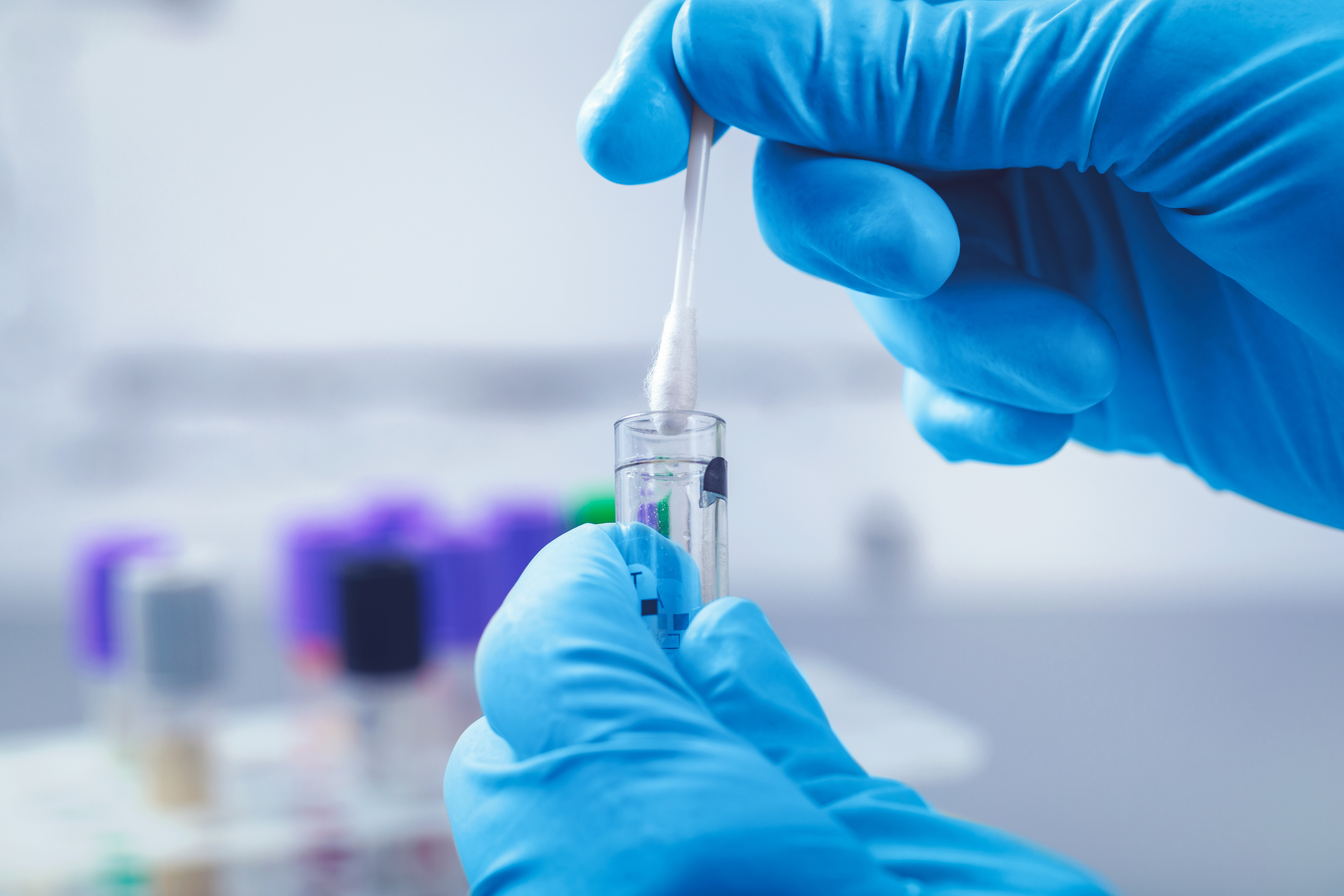A partnership project setup between Cwm Taf Morgannwg University Health Board (CTMUHB), the University of South Wales, and Llusern Scientific, to rapidly diagnose a range of illnesses from Covid-19 to urinary tract infections using LAMP, a newly developed molecular technology.

The challenge
Due to the rapid spread of Covid-19 cases from 2020 onwards, fast and accurate detection of viruses became vital to controlling the spread of the infection and help prevent serious illness within patients.
The PCR method (reverse transcriptase polymerase chain reaction), which has been used for mass testing across the UK since the start of the pandemic, is regarded as providing the most accurate and efficient detection of Covid-19.
However, certain factors limited the application of PCR testing. While the technique is most amenable to centralised lab processing, it is not workable in community, care home and social screening settings. Additionally, the nature of the PCR method means it delivers relatively slow sample processing times. Also, the huge global demand for mass testing resulted in unprecedented pressures on the supply chain for the reagents that are essential for PRC testing.
As a result, it quickly became apparent that an alternative method of rapid testing needed to be produced on a very short timescale.
The solution
Before Covid-19, the University of South Wales (USW) was developing a rapid test to detect urinary tract infections using a molecular technology, LAMP (loop-mediated isothermal amplification), suitable for use at point-of-care.
LAMP amplifies specific regions of DNA or RNA in a similar way to a PCR test but uses isothermal conditions (65°C) and produces a result within approximately 30 minutes. In addition, the test doesn’t require expensive technology to produce the result, making it suitable for use even in community settings, such as in a care home.
The potential use of LAMP as a diagnostic tool has long been recognised, but predominately for plant pathogens and in low resource human settings. Commercial LAMP diagnostic tools and tests were scarce. Having successfully developed LAMP for the rapid testing to identify urinary infections, the University of South Wales team, led by Dr Emma Hayhurst and Dr Jereon Neuland, discovered the potential existed to adapt the test for Covid-19.
Working in partnership with Cwm Taf Morgannwg University Health Board (CTMUHB), the USW team were able to begin the development and trial of their Covid-19 test.
The first step was to produce a probe or swab to capture the samples on, as the sudden increased need for testing swabs at the start of the pandemic had caused a widespread and sustained supply chain issue.
The solution was to use 3D printing technology, held by CTMUHB in their Prince Charles dental labs, to create their own printed swab design. Once the design was finalised, the manufacturing could be outsourced to a local plastic injection moulding service, UPG, based in Mountain Ash.
The result was a test capable of delivering a positive result in less than 30 minutes, which uses a non-invasive nasal swab to take a sample that is then inserted directly into a reaction tube.
With a local supply chain for swabs in place, the LAMP based test became a viable method for detecting Covid-19 in individuals with a range of symptoms, including those who were a-symptomatic (not showing any symptoms).
However, expanding the test for commercial use in a health care setting required establishing an entity that could exist and operate independently of the USW or CTMUHB. Llusern Scientific, a limited med-tech company, was created to enable the tests to go through the regulatory process and enter the commercial market.
A service evaluation was then set up in partnership between CTMUHB and USW to compare the performance of the LAMP test to the PCR tests utilised by Public Health Wales (PHW). That investigation saw the LAMP test trialled against approximately 300 individuals who presented themselves as needing a Covid-19 test within CTMUHB.
The outcomes
The results of the comparison trail conducted with the 300 candidates sourced from CTMUHB demonstrated that, with the optimised primer set and reaction conditions, it was possible to achieve equivalent sensitivity to RT-PCR with the LAMP test.
LAMP also successfully proved sensitive enough to detect asymptomatic individuals direct from a nasal swab with no sample processing. Furthermore, adding saliva to the probe via an initial mouth dip and performing the test immediately without storage, would also likely improve the sensitivity even further, making LAMP a workable solution for simple, rapid POC Covid-19 testing.
However, due to changes made by the Medicines and Healthcare products Regulatory Agency, and the abundance of lateral flow tests created by larger commercial manufacturers, the need for the LAMP test in a Covid-19 setting was no longer an essential requirement.
Nevertheless, the innovation process between CTMUHB, USW and Llusern Scientific, provided a critical partnership for future uses of the LAMP test.
Dr Emma Hayhurst, molecular microbiologist at the University of South Wales, said: “This collaboration between health care, academia and industry to develop LAMP has been a really educational venture through the research, production and testing processes. The partnership has created a momentum for innovation and we have the hope that the LAMP test will go onto be a viable option for another purpose.”
Reverting to its initial purpose to test detect urinary tract infections, the LAMP test is currently going through an approval process to be used by CTMUHB, alongside the Bevan Commission.
Find out more
For more information on the project, contact Lauren Ware, Project Lead and Business Support Manager for Innovation at CTMUHB on Lauren.Ware@wales.nhs.uk
